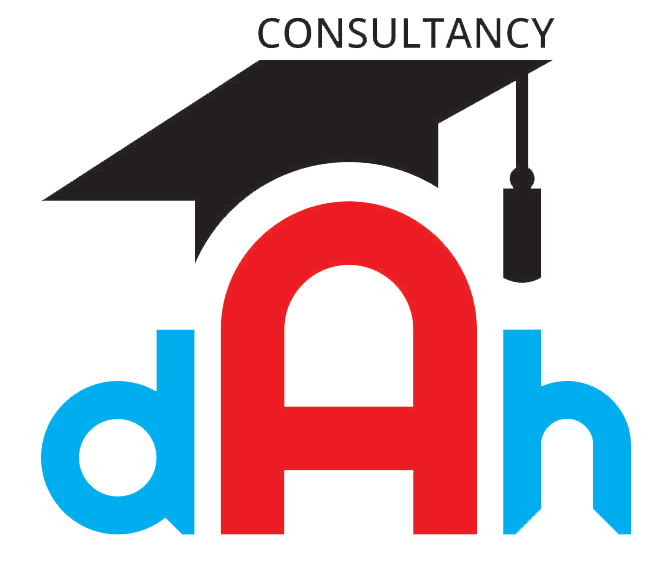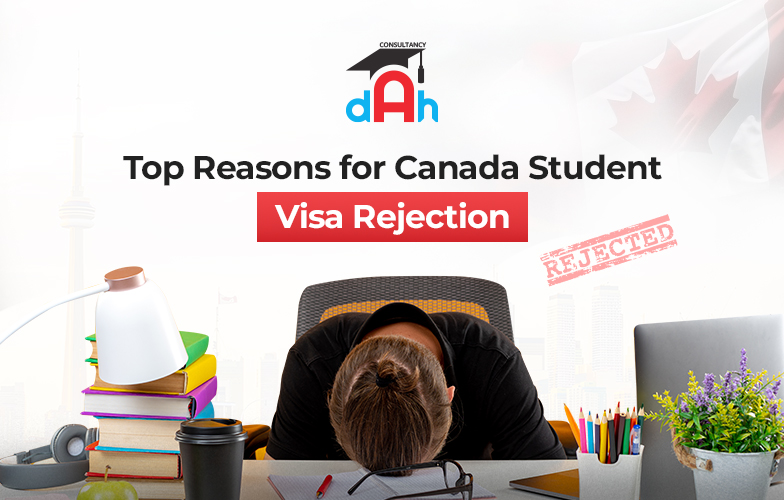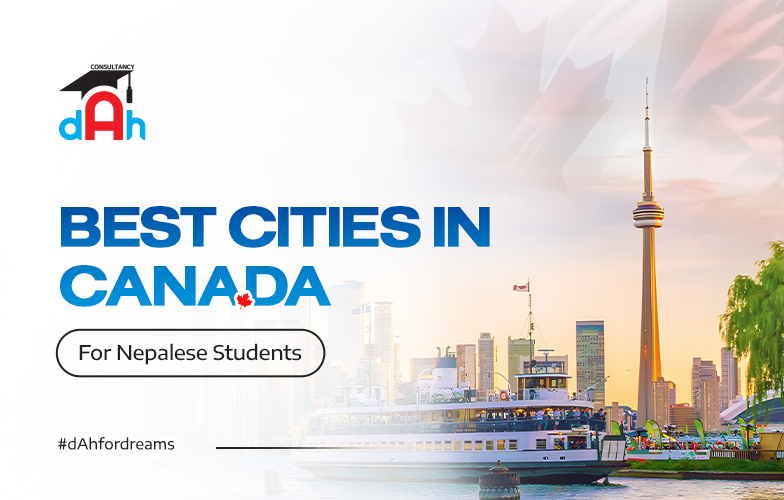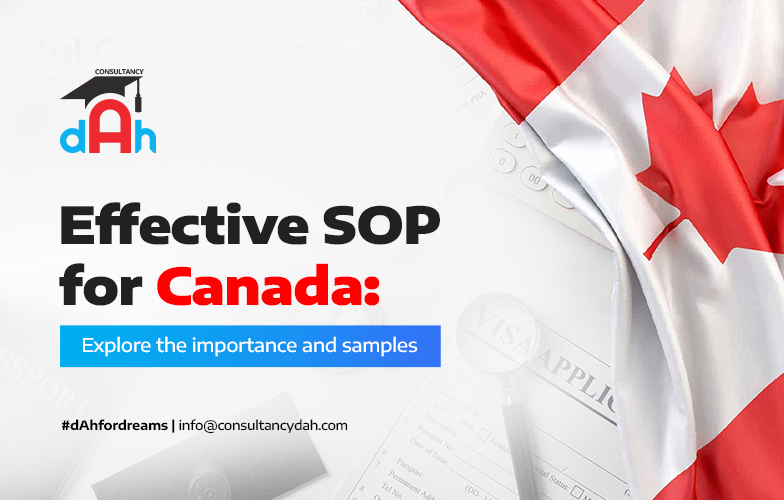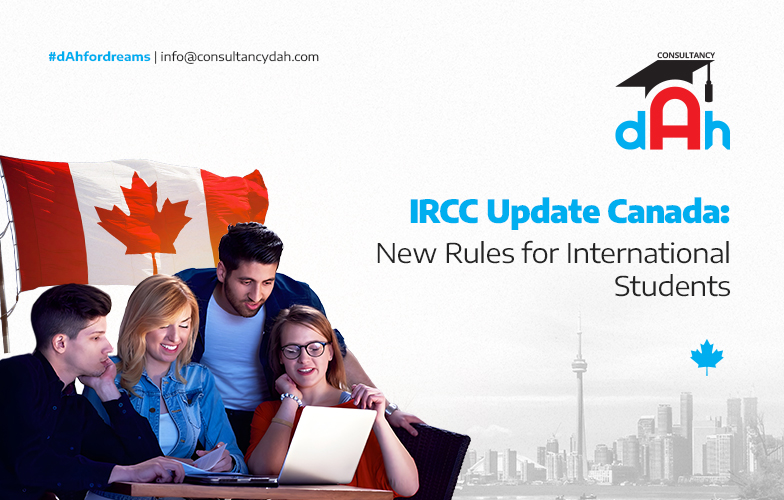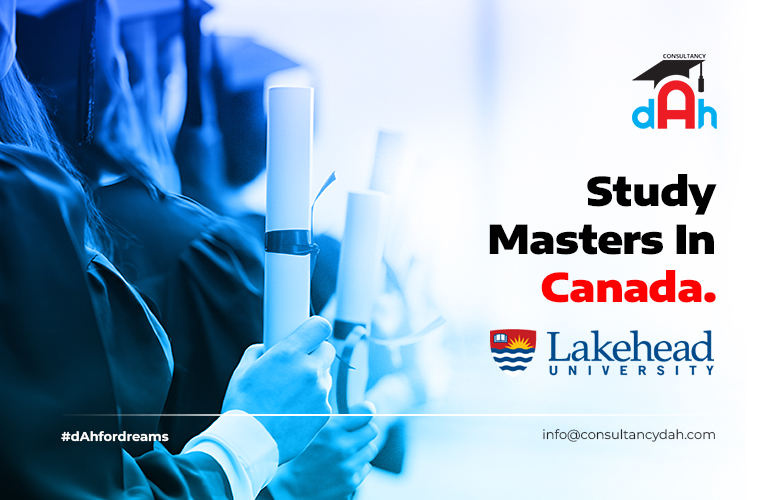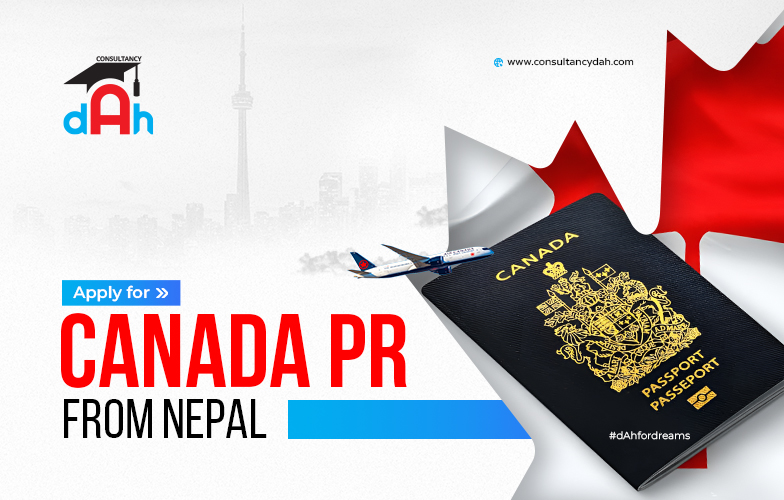Getting a student visa to their destination is every international student’s dream. A student visa rejection can be heartbreaking for international students who have worked hard to ensure everything is correct. Discover the top reasons for Canada student visa rejection and learn how to avoid common mistakes. If you’ve chosen Canada as your academic destination, you should be aware that the country accepts a high number of students each year. However, Canadian student visa rejection is a common concern. If you are searching to study in Canada from Nepal then don’t worry, Consultancy dAh is the best consultancy in Nepal for Canada.
There may be different reasons behind visa rejections. The immigration office’s email may not explain the reasons for refusal, but you can find them via the Global Case Management System, or GCMS.
This blog will provide you with common reasons for visa rejection as well as advice on how to avoid making the same mistakes while applying or reapplying.
Reasons for Canada Student Visa Refusal
When considering higher education abroad, you need to first understand everything regarding student visa applications. If you want to study in Canada, you should be aware of the reasons for student visa rejection. Here are some reasons:
- Canada Visa Refusal Reason: Insufficient Documents
International students from all over the world want to study in Canada, but the majority of the applications get rejected because of faulty documents or insufficient information. The most important part of applying for a visa is to ensure that your documentation is valid and trustworthy.
The majority of visa selection is based on your documents, thus it is important to submit top-notch documents. Make your documents strong, fact, and trustworthy so that your visa is strong.
- Canada Visa Rejection Reason: English Language Proficiency
International students applying for SDS, PNP, or SPP programs must pass the IELTS, PTE, or TOEFL exams to prove language proficiency. Failure to meet these criteria may result in a student visa rejection. Non-native English speakers must also demonstrate proficiency in the language. Applicants must meet the minimum standard English language exam scores (TOEFL/IELTS) for SDS or SPP programs. Even if a candidate meets the DLI English Language Proficiency average criteria, failing to meet program conditions may result in a Canadian student visa rejection.
- Canada Visa Refusal Reasons: Insufficient Funds
Canadian student visa applications may be denied if applicants cannot demonstrate sufficient funds for the first year of a school or program. Valid documents proving financial statements is necessary. The minimal criteria is proof of sufficient funds for the first year, though insufficient funds may result in visa rejection. Applicants may overcome this issue by submitting proof of sufficient funds for more than a year, as well as additional financial documents.
- Reasons for Visa Rejection Canada: Choosing the wrong program with your prior education or work experience
The study program you choose significantly influences the acceptance of your study permit application in Canada. It’s crucial to align your chosen program with your career path, education, or work experience to convince immigration officials that your primary motivation for coming to Canada is education. A clear statement of purpose should explain your chosen program’s benefits to your career. Immigration officials may reject your visa application if there’s no career progression, sudden changes in streams, or a career gap.
- Canada Student Visa Refusal Reason: Acceptance Letter
A letter of approval from a Canadian DLI is required for the study permit application in Canada. The Canada student visa application may be denied if the applicant’s acceptance letter is doubtful. Candidates must also fulfill the minimum entrance criteria for the school. To avoid Canada Student Visa Rejection reasons, applicants should confirm the institute from which they receive an acceptance letter is licensed.
- Reason for Canada Student Visa Rejection: Not clear about returning to your own home country
Applicants for a temporary visa in Canada must provide sufficient documentation of their intention to return to their home country. This is crucial to avoid Canadian student visa rejection. The study permit’s validity is set, and applicants must present papers indicating their return to avoid remaining in Canada.
- Student Visa Rejection Canada Reason: Lack of employment in your own home country
The absence of job opportunities in a candidate’s home country may indicate a desire to return home, leading to a potential Canadian student visa rejection. This is particularly true for candidates without clear professional paths or job offers who may be presumed to intend to stay permanently in Canada.
How to Reduce Canada Student Visa Rejection Chances?
Rejection of a student visa is something that no student deserves to experience. Even if some factors are beyond your control, you should consider taking the necessary precautions. Here are a few tips that can help you reduce your chances of having your Canadian student visa rejected:
- To be accepted for a Canadian student visa, you must complete an entire application and include all required supporting documents.
- Throughout your application, be sure to provide accurate and complete information, and try to avoid any errors or inconsistencies.
- Make sure to provide proof that you can sustain yourself financially while studying in Canada.
- Be prepared to answer any extra questions the visa officer may have, in addition to being asked why you want to study in Canada.
- If you are applying for a student visa to Canada, you should be familiar with current immigration regulations and stay up to date on any changes.
- Make sure your statement of purpose is written clearly.
Conclusion:
Getting through the Canadian student visa application process can be tough, but knowing the common reasons for visa rejections and avoiding them can greatly improve your chances. By ensuring your documents are complete and correct, showing that you have enough money, choosing a study program that matches your career goals, and clearly stating your intention to return home after your studies, you can strengthen your application. Remember to stay updated on immigration rules and write a clear statement of purpose. With careful preparation and attention to detail, you can make your dream of studying in Canada come true.
FAQ’s
- What is the main reason for Canada student visa rejection?
The main reason for Canada student visa rejection is incomplete or incorrect documentation. Make sure all your papers are complete and accurate to avoid this issue.
- How to check Canada visa rejection reasons?
You can check the reasons for your Canada visa rejection through the Global Case Management System (GCMS) notes. Request these notes to understand why your application was refused.
- Can I get a Canada visa after 3 refusals?
Yes, you can still get a Canada visa after 3 refusals. Carefully address the reasons for previous rejections, improve your application, and reapply.
